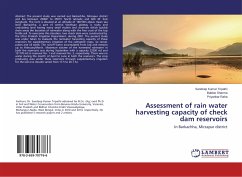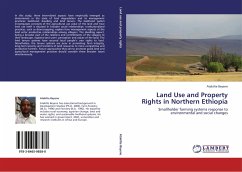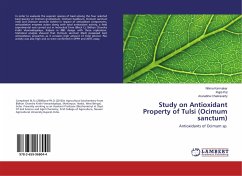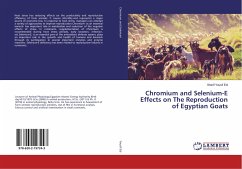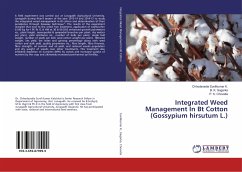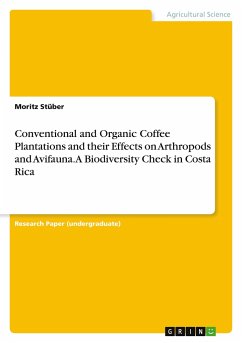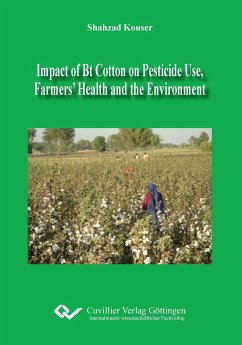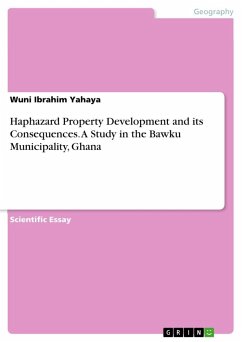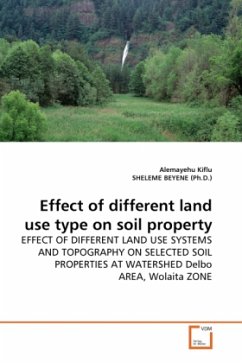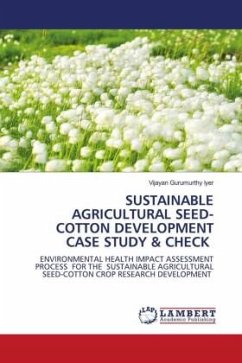
SUSTAINABLE AGRICULTURAL SEED-COTTON DEVELOPMENT CASE STUDY & CHECK
ENVIRONMENTAL HEALTH IMPACT ASSESSMENT PROCESS FOR THE SUSTAINABLE AGRICULTURAL SEED-COTTON CROP RESEARCH DEVELOPMENT
Versandkostenfrei!
Versandfertig in 6-10 Tagen
29,99 €
inkl. MwSt.

PAYBACK Punkte
15 °P sammeln!
Sustainable agricultural seed-cotton development is a kind of development that meets the needs of the present without compromising the ability and efficiency of future generations to meet their own needs. The environmental health impact assessment (EHIA) process is proposed. EHIA can be defined as the systematic identification and evaluation of the potential environmental health impacts or effects of proposed biotechnology seed-cotton projects, plans, programs, policies, or legislative actions relative to the physical-chemical, biological, cultural, and socioeconomic components of the total en...
Sustainable agricultural seed-cotton development is a kind of development that meets the needs of the present without compromising the ability and efficiency of future generations to meet their own needs. The environmental health impact assessment (EHIA) process is proposed. EHIA can be defined as the systematic identification and evaluation of the potential environmental health impacts or effects of proposed biotechnology seed-cotton projects, plans, programs, policies, or legislative actions relative to the physical-chemical, biological, cultural, and socioeconomic components of the total environment. The strategic environmental assessment (SEA) process can be broadly defined as a study of the impacts of a proposed project, plan, project, policy, or legislative action on the environment and sustainability. The biotechnology for the control of bollworms is made available in the seed-cotton itself. The resultant seed-cotton variety having the ability to produce Bt ( Bacillus thuringiensis) toxic proteins and defend against insects, pests abd herbs. But after the introduction of Bt seed-cotton, EHIA was conducted to find the environmental health impacts.




